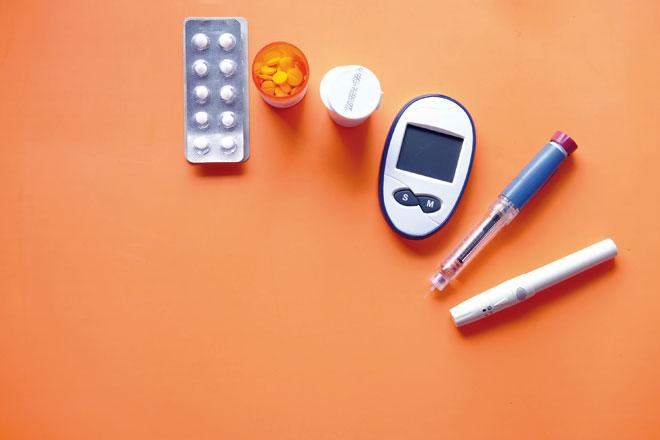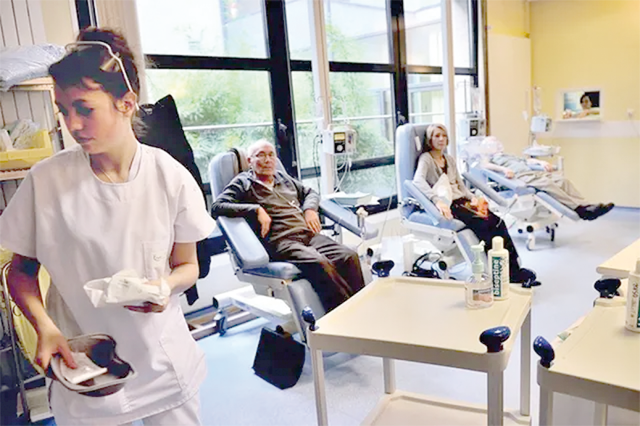You are here
Increased prevalence of geriatric diseases among youth a cause for concern, say experts
By Batool Ghaith - Aug 09,2022 - Last updated at Aug 10,2022

Representative image (Photo courtesy of unsplash.com/Towfiqu Barbhuiya)
AMMAN — Psychological stress and pressure alongside poor lifestyle choices have increased the incidence of geriatric diseases such as diabetes and high blood pressure among Jordanian youth, according to experts.
Health experts told The Jordan Times that in recent years, the number of young Jordanians suffering from such diseases has been “significantly increasing”.
Endocrinology and diabetes consultant Hisham Al Jarboua said that the incidence of Type 2 diabetes among adolescents and young adults in Jordan has increased dramatically within the last decade, highlighting that 50 per cent of Jordanians suffer from diabetes.
According to Jarboua, the increase of diabetes in young adults and children can be attributed to several factors, including society-induced psychological distress and poor health management.
“It is known that Type 2 diabetes primarily affects adults over 40, but we now are seeing diabetes in children, adolescents and young adults, mostly due to obesity,” he told The Jordan Times.
Jarboua claimed that people’s lifestyles have completely changed with the increased influence of technology and social media in daily life. These factors have negatively affected public health in a variety of ways, such as promoting a lack of movement, he added. “People nowadays barely leave their houses because they choose to get everything delivered instead,” Jarboua said.
As for the psychosocial factors affecting early-onset geriatric diseases, Jabroua said that “fresh graduates [in particular] have major stress and anxiety, caused by over-thinking about the future, marriage, having a family, and the fear of staying unemployed, leading to psychological depression”.
He indicated that social factors, predominantly youth unemployment, negatively influence the self-confidence and self-esteem of young people, which further affects their health and the high incidence of these diseases.
“Raising awareness is needed, especially among students. They need to play sports, move more, and avoid unhealthy food in order for them to stay fit,” Jarboua added.
Sociologist Hussein Khozahe told The Jordan Times that young people are under the most pressure within Jordanian society due to the high youth unemployment rate.
“Unemployment leads to chronic psychological, social and physical ailments. Unemployed young people feel stigmatised as unproductive and ineffective members of society,” Khozahe said.
Psychological pressure of this nature leads to what Khozahe terms “social diseases”, such as delayed marriages due to the inability to secure basic needs. The permeation of such “social diseases” are evidenced by the fact that “48 per cent of young Jordanians think of emigration,” Khozahe added.
Moath Al Kurdi, an internal medicine and heart diseases specialist, also highlighted the fact that young Jordanians today are more prone to early-onset geriatric diseases.
“Stress and anxiety increase certain hormones, like adrenaline, within the body, which puts pressure on the internal organs, specifically the arteries and the pancreas. This pressure causes internal damage at a much earlier age and contributes to early-onset chronic disease. This is scientifically proven,” Kurdi told The Jordan Times.
Kurdi noted that the widespread use of nicotine products in Jordan, popular across all ages, is also a primary culprit behind many diseases.
“Only 1 per cent of patients we receive in the clinic do not smoke, which is unfortunate. Most people who smoke blame it on harsh living circumstances and the stress of life, which again, increases hormone production to harmfully abnormal levels,” he added, highlighting the cyclical nature of these risk factors.
He urged the public to manage their diets and to be conscious of both quality and quantity of food. Kurdi also suggested avoiding smoking in order to remain healthy, and further recommended regular exercise, yoga and reading to help maintain physical fitness and good mental health.
Kurdi also stressed the importance of mental health and psychological resilience in overall health. “People need to train themselves to think more rationally, especially when dealing with shocks and surviving hard times,” he said.
Related Articles
A parent enjoying an alcoholic drink might find his or her young child to be curious about what’s in that bottle or glass.
PARIS — Catherine, Princess of Wales, announced on Friday that she is undergoing preventative chemotherapy to treat cancer discovered after
Losing weight may help people with diabetes limit damaging changes to the brain that can result from the disease, a US study suggests.Resear

















